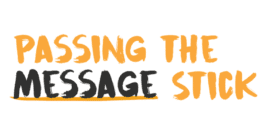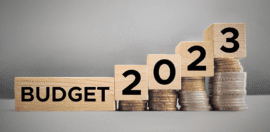High Court Ruling Another Win for Charitable Advocacy

30 January 2019 at 4:34 pm
The not-for-profit sector is celebrating another win for charitable advocacy after the High Court struck down electoral laws imposing a stricter spending cap for third-party campaigners including charities.
On Tuesday, the High Court unanimously ruled that the New South Wales’ Electoral Funding Act breached the Australian Constitution’s implied freedom of political communication.
This bill slashed the amount third-party groups could spend on election campaigns from just over $1 million to $500,000, but increased the amount political parties could spend to $11 million.
Six unions led by Unions NSW filed a High Court challenge to the new laws in August 2018, arguing the changes would stifle public criticism of the NSW Berejiklian government during this year’s state election campaign.
Chief Justice Susan Kiefel and Justices Virginia Bell and Patrick Keane said in a joint statement the NSW government had not established that the stricter cap was needed to prevent the drowning out of other voices during an election campaign, which was the government’s identified purpose.
The High Court unanimously rules that the @LiberalNSW electoral spending law breaches the implied freedom to political communication. We've successfully defended a second unconstitutional attack on democracy from the Liberal government. #auspol #ausunions @abcnews pic.twitter.com/5VqW4vMXl3
— Unions NSW (@unionsnsw) January 29, 2019
The decision was labelled a win for the NFP sector, with Community Council for Australia CEO David Crosbie telling Pro Bono News it protected the rights of every Australian to participate fully in democracy and advocate for the policies they believed in.
“In recent debates about electoral reform in Australia, there has been a tendency of some politicians to suggest that political parties should be the main players in the political process, and that others – like some charities – are inappropriately entering into the political space when they advocate on an issue,” Crosbie said.
“In fact, electors should be the main players in any democratic process and if electors choose to collectively support a charity and advocate for the policies they believe in, that can only be a positive for the democratic process.”
Unions NSW v NSW TL;DR: Big win for civil society.
Political parties don’t have special right to sway public opinion during elections.
NSW govt can’t reduce caps for third parties from $1M to $500k. #auslaw 1/2
— Isabelle Reinecke (@isreinecke) January 29, 2019
Crosbie said as a consequence of the ruling, no government or political party in Australia could impose limitations on charities greater than the limitations imposed on political parties.
“This is a win for democracy and a win for all non-political campaigners,” he said.
Krystian Seibert, an industry fellow at the Centre for Social Impact at Swinburne University, agreed the ruling was a win for the sector.
He told Pro Bono News that charities engaged in advocacy and grassroots campaigning, would have found it much harder to launch any campaign that influenced voters at scale because of the restrictions.
“It would’ve also made it harder for charities and NFPs to collaborate with each other and contribute to sharing the costs of these campaigns,” Seibert said.
He added the struck down restrictions were an example of how governments could use electoral laws to protect themselves from critics and shield themselves from accountability.
“It’s likely that the NSW government will be able to reintroduce an expenditure cap on third parties, but it will have to tread very carefully given the lines laid down in the High Court’s decision and the need to be able to clearly justify the level of the cap,” he said.
Interesting, but based on the High Court's decision yesterday in Unions NSW (No.2), I reckon the ACT's electoral expenditure caps may be on very shaky ground, as they strongly privilege political parties over third party campaigners (https://t.co/2Olk4DsPTy) @katie_b_burgess
— Krystian Seibert (@KSeibertAu) January 30, 2019
The secretary of Unions NSW, Mark Morey, said the High Court ruling was a welcome repeal of “draconian laws”.
“What the High Court has said is that a government cannot rig an election, cannot silence its critics in NSW by simply passing legislation,” Morey told reporters on Tuesday.
But NSW Treasurer Dominic Perrottet lamented the decision, issuing a statement that said unions would now be able to “exercise free rein on spending their member’s dues – without giving them a say – on wall-to-wall advertising during the NSW election campaign”.
The NSW election will be held on 23 March.







